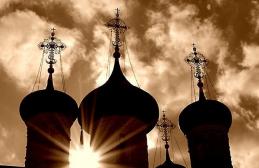Jan
8
2013
How the Chinese address each other.
To China from 700 rubles!The Chinese address acquaintances - not only relatives - using terms of kinship or using words with the meaning of profession or occupation. It is not customary to simply address people by name. Only recently has it become common among young people or very close friends.
The Chinese do not have abstract concepts of “brother” or “sister”, only concrete ones, for example: “younger cousin”. Therefore, in Chinese you cannot, as in Russian, say: “I have a brother,” or “This is my sister.” It is imperative to clarify: “This is my older sister.”
Because everyone in China refers to each other in terms of kinship, a child may not know the name of his grandmother or aunt, because this name is never spoken out loud. Even his mother would never call her little sister by her first name, so the name is hard to hear. And since there are a lot of aunts, uncles, brothers and sisters, in order not to get confused, they add their “serial number”: second aunt, third uncle, fifth older brother, etc. Moreover, it is not only relatives who address each other this way. If, for example, two brothers work in the same office, then all colleagues address them (or call them behind their backs) in the same way: “second older brother” and “fifth older brother,” for example (this is only permissible in small teams, where people know each other well).
The older sister always calls her younger sister or brother by name; they do not have the right to do this, even if they are already adults and only a year younger than her. They only call her “elder sister” (da-jie). Perhaps this comes from the old ban on “taking in vain” the names of respected people (for example, the same emperor or his random namesakes) and relatives.
How do the Chinese approach strangers in modern life? Of course, there are also addresses by last name (this is rare), but still most often you hear this:
宝贝 - bao-bei - “treasure”; this is an appeal to a child;
小朋友 - xiao pen-yu - “little friend” - to a child;
小伙子 - xiao huo-tzu - appeal to a young man;
哥们儿 - ge-mayor - addressing a young man in Beijing slang;
小姐 - xiao-jie - address to a young woman (literally - younger sister); this title is common in the north, but in the south it means “corrupt woman” and should be avoided there. Northerners often imitate southerners, and recently some residents of the capital also consider such treatment indecent;
大姐 - da-jie - an appeal to a woman who is older in age (literally - older sister);
女士 - nü-shi - “lady”;
阿姨 - a-i - addressing an older woman;
师傅 - shi fu - “master”, an appeal to a man who has some kind of working specialty;
先生 - xian-sheng - “master”, an address to a man;
老头 - lao-tou - “old man”, an address to an old man (the address is quite rustic);
…. - lao xian-sheng - “master”, to an elderly intelligent man;
老太太 - lao tai-tai - “old woman”, an appeal to an elderly woman or old woman;
…… - lao-ren-jia - polite address to an elderly person;
同志 - tong-zhi - “comrade”, this is how you can address, in my opinion, anyone;
…… - fu-u-yuan - addressing service personnel, for example, in a restaurant;
同胞 - tong-bao - “born of the same parents” or “compatriot”; This is what the Chinese from the mainland call Chinese from Hong Kong and Taiwan who came to their homeland to do business here. And these Chinese look down on the mainlanders, admittedly, somewhat down on themselves.
The Chinese also address each other using the words “teacher”, “master”, “doctor”, and they can address people they know specifically: “teacher Wang”, “master Zhang”.
Riding on public transport and being disrespectful to parents can lead to Chinese people being denied a loan, not being hired, or not being allowed on a plane.
One day, Chen Li swiped her son’s student card through a subway turnstile instead of her own, and the trip turned out to be half the price. The result was a $6 fine and a reprimand from the inspector.
However, her action could have had more serious consequences. The woman was warned that the incident could be included in the city's "personal credit information" system. According to official statements, the decline credit rating Chen will affect many aspects of her life: it may become more difficult to get a loan, find a job, and make it harder for her son to get into school.
The Hangzhou city government is piloting a “social credit” system. The Communist Party has said it wants to make the practice universal by 2020 - the regime needs to maintain its legitimacy and it's time to switch to digital methods.
While more than 30 local governments across China are beginning to collect similar citizen data as part of a pilot project, social and financial behavior will be taken into account to calculate a credit rating. A “black mark” can be obtained for traveling without a ticket, jaywalking, or violating family planning rules. The project is reminiscent of the system of dossiers that the Communist Party collects on every city resident.
Judging by government documents and interviews with the authors of the system, over time Beijing hopes to collect more complete data on the lives of citizens, including their Internet activity. The algorithm will calculate a citizen’s rating, and then it will be taken into account when distributing benefits: loans, queues for treatment in public clinics or access to expensive hotels.
The initiative is consistent with other moves by Xi Jinping, who is trying to tighten control over citizens, including their morals, amid economic problems that could undermine the party's power. In October, the president called for innovation in the field of “social management” due to the need to “increase the ability to predict and prevent all kinds of risks.”
The documents concerning the new credit system repeatedly declare the goal:
“Ensure complete freedom for the trustworthy citizen and restrict the unreliable one.”
So far, pilot systems in different regions are not linked together, so there is no national rating yet, but this is in the plans. It is not clear whether Chen's violation was reported to the centralized system: it is stated that "hares" will be counted starting January 1, and an official at the station told The Wall Street Journal that this only applies to repeat offenders.

Zan Aizong, a human rights activist from Hangzhou, believes that the state, which already denies citizens some basic freedoms, including freedom of speech, plans to move even closer to the world of Orwellian dystopia. He says: “Yes, widespread surveillance, just like in 1984.”
Blacklisted
Such practices are already common within China's judicial system. Zhuang Daohe, a lawyer from Hangzhou, cites the example of his client, a co-owner of a travel company, who is unable to buy a plane or express train ticket because a city court has declared him a loser in a dispute with his landlord. The client's wife says: "Business is suffering - my husband can no longer accompany clients." Zhuang adds:
“They are not immune to mistakes and may punish the wrong person.”
The government has other systems; one of them maintains a “black list” of guilty tourists.
The introduction of the social credit system is carried out by the State Council - this is the Cabinet of Ministers of China - and the local State Planning Committee. The draft, published in 2014, said it aimed to “increase transparency” in economic, social and political activities. The need for fair and honest government and punishment for bribe-takers and violators of environmental laws was also emphasized.
According to the plan, “blacklists” are intended to punish violators and prohibit them from certain types of activities, while good citizens will have access to “green lanes,” that is, the accelerated provision of government services. Some professions will be subject to stricter control measures: lawyers, accountants, teachers, journalists.

To create a surveillance system for 1.4 billion people, the Chinese government will have to overcome a number of technological and organizational difficulties. Meng Tianguang, a political scientist at Beijing's Tsinghua University, advises the government on the use of big data in governance, but is not directly involved in developing the social credit system. He notes that departments protect some information, and this makes it difficult to create a unified database. In addition, their systems are often not compatible with each other. Maine says:
“It is not yet clear whether such a project can be implemented. In any case, this is better than the traditional approach, where there is no data and everything depends on the opinion of the individual.”
The official website of the Shanghai government lists the types of violations for which you can receive penalty points in the pilot system. There are many of them: late payment of bills and violation of traffic rules. According to state media, the list also includes disrespect for elders (under Chinese law, parents over 60 can sue their children if they do not visit them regularly and do not help with groceries).
Citizens can view records in the database, but so far it appears to only contain data on financial irregularities.
Despite official media warnings and propaganda extolling the benefits of transparency, dozens of people interviewed by The Wall Street Journal on the streets of Shanghai were unaware of such a system. Many, however, agreed that the state should ensure the highly moral behavior of citizens, and condemned those who spit in the streets, jump queues and do not help strangers.
Yang Wang, an expert on online behavior at Syracuse University, conducted a study showing that Chinese Internet users are accustomed to government surveillance and are less concerned about privacy than Americans. He notes that even the word “yinxi,” the equivalent of the English word privacy, did not appear in popular Chinese dictionaries until the 1990s.
Behavior Reports
In one leafy suburb of the city of Yangjing, local authorities maintain a database that could give us an idea of what a social ranking system would look like on a larger scale. The database collects reports on the behavior of local residents, which are compiled by the chairmen of residential committees, said Yuan Jianming, head of the municipal unit leading the project.

Since mid-2015, the municipality has published a monthly "red list" of exemplary residents of the area. Zhu Shengjing, a 28-year-old middle school teacher, was placed on the red list in September. He himself says that he does not know why. Although he always tries to behave decently, the thought of the financial consequences confuses him: in Zhu's words, "it's a little too much."
The municipality also maintains a "grey list" of residents with poor behavior - for example, those who threw rubbish out of windows. However, officials have not yet decided whether to publish it.
In an area of about 170,000 people, only about 120 were on the red list. This year, local officials complained in interviews with Chinese media that the ranking was hampered by limited data sharing between departments.
In the cities where the project was launched, a rating is maintained not only of individual residents, but also of companies: anyone can view data on registered companies, although sometimes they are incomplete. One of the project's goals is to change what Chinese leaders see as a woeful lack of trust among citizens after decades of corruption and unfair competition.
One example is the issue of food safety. It is particularly acute in Chinese society after six children died due to melamine poisoning in milk powder in 2008. The incident was followed by other scandals, including those related to the sale of waste oil collected from restaurant sewers. All this does not contribute to business confidence among consumers.
Yangjing officials offer a solution. This summer they installed touch screens in some restaurants, part of a local trial of a social rating system that helps provide a level of business transparency unusual in China.
Each screen flashes bright slogans - one of them translates as "heart to hand, be a model of sincerity" - and displays information about where the ingredients come from and when the company last turned in used oil. Through the mobile application, visitors can watch a video broadcast of the chefs’ work. In addition, the system displays the eatery's rating with the local health inspectorate.

Recently, the screens at the vegetarian restaurant Jujube Tree were partially covered with Whatman paper. Manager Wang Dacheng claims the system wrongly downgraded the restaurant's rating and local officials failed to correct it. He complains: “We have a lot of regular customers. What if they come and see this? Wang says he supports the system but would not implement it until it is better managed.
To compile the basic rankings, local officials rely on information collected by government departments, such as court records and tax and loan data. More detailed recording of users' daily habits, such as using social media and online shopping, falls on the shoulders of Chinese internet companies, including e-commerce giant Alibaba Group Holding Ltd (NYSE: BABA).
The social rating service, backed by Alibaba affiliate Ant Financial Services - one of eight companies chosen to pioneer commercial experiments with social ratings - assigns scores to users based on things like the purchases they make online. With the permission of the users themselves, the system can also access information about their education and legal documents. Previously, you could increase your rating in a number of other ways - for example. voluntarily undergo express security screening at Beijing Airport. Joe Tsai, vice chairman of Alibaba, says:
“Online behavior, especially among younger users, has a big impact on building a credit profile, and we want people to be aware of this and behave better as a result.”
Alibaba provides aggregate data on online sales to China's statistics bureau, but does not disclose personal information unless required by law, such as during a criminal investigation, Tsai said.
In the United States, there are also private enterprises that compile certain user ratings based on consumer data or reviews, for example, credit reporting bureaus or ride-sharing services.
So far it does not appear that testing of the system at the municipal level will affect the private sector. sector, although the draft social rating system calls Internet data a “strategic national resource.” The government is asking internet companies to share data without going into detail.
Zhu Wei, a professor at the China University of Political Science and Law who served as a government adviser on the project, said it was unclear whether public and private data systems would be combined.
In an October message to 1.5 million Chinese officials, Alibaba CEO Jack Ma urged law enforcement agencies to use Internet data as a tool to identify criminals. He did not mention Alibaba's involvement in such programs, but his comments sparked widespread debate over whether Internet companies should share data with government agencies. Alibaba said in a statement:
“We believe that applying machine learning and data analytics to crime prevention is consistent with our core values of solving community problems.”
In an interview with state media on November 1, Liang Weiliang, deputy head of China's central planning committee, noted that much of the government's data related to credit ratings was stuck at the stage of "isolated islands" of information. The centralized platform was created to encourage information sharing, he said. He claims that the platform has already collected 640 million credit records from 37 central government departments and various local governments.
The agency said the government prevented the purchase of 4.9 million air tickets by unreliable citizens who had previously had problems with the judicial system.
Some government advisers are skeptical of plans to launch the system by 2020 due to the sheer scale of the task of integrating data and storing information securely.
In Hangzhou, where Chen Li used her son's travel pass, residents can check their social rating at a government service center. So far, the reports only contain data on how well people fulfill their health insurance obligations and pay social contributions - and this, of course, bears little resemblance to the goals of the central government.
When speaking in Russian about our relatives, we have to make many clarifications. If we are talking about an aunt, it is not immediately clear whether this is the father’s sister or the mother’s sister. Needs to be clarified. In the Chinese language, for each relative there is a certain word, upon hearing which, you will immediately understand which line the relative belongs to - the father’s line or the mother’s line, and whether he is older or younger than you. Families in China are large and “branchy”, so there are quite a lot of words denoting relatives. Let's look at them all.
First, let's look at the closest people and direct relatives.
| In Russian | In Chinese | Pinyin |
|---|---|---|
| Me (myself) | 我 (自己) | wǒ (zìjǐ) |
| Beloved (husband or wife) | 爱人 | airen |
| Husband | 丈夫 | zhangfu |
| Wife | 妻子 | qīzi |
| Son | 儿子 | erzi |
| Daughter | 女儿 | nǚ'ér |
| Mother | 妈妈 / 母亲 | māma / mǔqīn |
| Dad | 爸爸 / 父亲 | bàba/fùqin |
| Elder sister | 姐姐 | jiějie |
| Younger sister | 妹妹 | meimei |
| Older brother | 哥哥 | gēge |
| Younger brother | 弟弟 | dìdi |
| Stepmother | 继母 | jìmǔ |
| Stepfather | 继父 | jìfù |
| Stepdaughter | 继女 | jìnǚ |
| Stepson | 继子 | jìzǐ |
| Mother-in-law (husband's mother) | 婆婆 | popo |
| Father-in-law (husband's father) | 公公 | gōnggong |
| Mother-in-law (wife's mother) | 岳母 | yuèmǔ |
| Father-in-law (wife's father) | 岳父 | yuèfù |
| Daughter-in-law (son's wife) | 儿媳 / 儿媳妇 | erxí / erxífu |
| Son-in-law (daughter's husband) | 女婿 | nǚxù |
In all definitions of seniority, it is important to remember that the name is given depending on the age of the speaker. That is, if there are three sons in a family, then the youngest will have 2 older brothers (两个哥哥 liǎng gè gēge), the middle one will have one older and one younger brother (一个哥哥和一个弟弟 yī gè gēge hé yī gè dìdi) and the eldest will have 2 younger brothers (两个弟弟 liǎng gè dìdi).
Now let's look at the rest of the relatives.
Here we will divide relatives into 2 parts - relatives on the maternal or female side and relatives on the paternal or male side.
Let's start with relatives on the paternal or male side.
| In Russian | In Chinese | Pinyin |
|---|---|---|
| Grandfather (father's father) | 爷爷 | yeye |
| Grandmother (father's mother) | 奶奶 | nǎinai |
| Uncle (father's brother) | 叔叔 | shūshu |
| Aunt (father's sister) | 姑姑 | gūgu |
| Older paternal cousin | 堂哥 | tanggē |
| Younger paternal cousin | 堂弟 | tángdì |
| Older paternal cousin | 堂姐 | tangjiě |
| Younger paternal cousin | 堂妹 | tángmèi |
| Daughter-in-law (elder brother's wife) | 嫂嫂 / 哥嫂 | sǎosao / gēsǎo |
| Daughter-in-law (younger brother's wife) | 弟妹 / 弟妇 | dìmèi / dìfù |
| Grandson (son of a son) | 孙子 | sūnzi |
| Granddaughter (son's daughter) | 孙女 | sūnnǚ |
| Niece (brother's daughter) | 侄女 | zhínü |
| Nephew (brother's son) | 侄儿 | zhir |
| Brother-in-law (husband's older brother) | 夫兄 | fuxiong |
| Brother-in-law (husband's younger brother) | 夫弟 | fudì |
| Sister-in-law (husband's older sister) | 女公 / 大姑子 | nǚgōng / dà gūzi |
| Sister-in-law (husband's younger sister) | 叔妹 / 小姑子 | shūmèi / xiǎo gūzi |
It remains to study the relatives on the mother's side
| In Russian | In Chinese | Pinyin |
|---|---|---|
| Grandfather (mother's father) | 外公 / 老爷 | wàigōng / lǎoye |
| Grandmother (mother's mother) | 外婆 / 姥姥 | wàipó / lǎolao |
| Uncle (mother's brother) | 舅舅 | jiùjiù |
| Aunt (mother's sister) | 阿姨 | àyí |
| Older maternal cousin | 表哥 | biǎogē |
| Younger maternal cousin | 表弟 | biǎodì |
| Older maternal cousin | 表姐 | biǎojiě |
| Younger maternal cousin | 表妹 | biǎomèi |
| Brother-in-law (elder sister's husband) | 姐夫 | jiěfu |
| Son-in-law (younger sister's husband) | 妹夫 | mèifu |
| Grandson (daughter's son) | 外孙 | wàisūn |
| Granddaughter (daughter's daughter) | 外孙女 | wàisūnnǚ |
| Niece (sister's daughter) | 外甥女 | wàishengnǚ |
| Nephew (sister's son) | 外甥 | wàisheng |
| Brother-in-law (wife's older brother) | 内兄 / 妇兄 | nèixiōng / fùxiōng |
| Brother-in-law (wife's younger brother) | 内弟 / 妇弟 | nèidì / fùdì |
| Sister-in-law (wife's older sister) | 姨姐 | yíjiě |
| Sister-in-law (wife's younger sister) | 姨妹 | yimèi |
Fratricidal war, civil war Dictionary of Russian synonyms. brother against brother noun, number of synonyms: 2 fratricidal war (2) ... Synonym dictionary
Brother is not a payer to brother; brother does not pay for brother.- Brother is not a payer to brother; brother does not pay for brother. See FAMILY RELATIVES...
Brother against brother is worse than adversary.- (i.e. if they are at enmity). See FAMILY RELATIVES... IN AND. Dahl. Proverbs of the Russian people
On the moon, Cain kills Abel; brother stabs his brother with a pitchfork.- On the moon, Cain kills Abel; brother stabs his brother with a pitchfork. See AGRICULTURE... IN AND. Dahl. Proverbs of the Russian people
BROTHER- husband. brothers, brothers, brotherly pl. brother, brother, brother, brother, brother · detracts., brothers plural, brother, brother · increased. each of the sons of the same parents, to each other, as well as to his sisters, or to the children of the same parents. Relatives, blood,... ... Dahl's Explanatory Dictionary
twin brother- twin brother, twin brother... Spelling dictionary-reference book
Brother-2 (film)
Brother 2 (film)- Brother 2 Brother 2 Genre action crime film Director Alexey Balabanov Producer Sergei Selyanov ... Wikipedia
Brother 2- Genre action crime film Director Alexey Balabanov Producer Sergey Selyanov ... Wikipedia
BROTHER- BROTHER, brother, plural. brothers (brothers wrong), brothers, husband. 1. Son of the same parents. || The name of some other degrees of relationship. Step-brother. Cousin. (see these words). 2. only units. (used always without stress. and adjacent to the previous one... ... Ushakov's Explanatory Dictionary
BROTHER- BROTHER, ah, plural. brothers, ev, husband. 1. The son of the same parents or one of them in relation to their other children. Native b. Cousin b. (son of an uncle or aunt). Second cousin b. (son of a great uncle or great aunt). Consolidated b. (son of stepfather or stepmother from ... Ozhegov's Explanatory Dictionary
Books
- Brother against brother, Polilov, Brother against brother: a historical story for youth / G. T. Severtsev-Polilov pseudonym. T 96/141: St. Petersburg: typ. Suvorina, 1910: G. T. Severtsev-Polilov pseudonym. Reproduced in original... Category: Library Science Publisher: Book on Demand, Manufacturer: Book on Demand, Buy for 2634 UAH (Ukraine only)
- Brother against brother, Polilov, Brother against brother: a historical story for youth / G. T. Severtsev-Polilov [pseud.] T96/141: St. Petersburg: type. Suvorina, 1910: G. T. Severtsev-Polilov [pseud.] Reproduced in the original... Category: Humanities Series: Publisher:
Those who have a high score will be rewarded. The rest, on the contrary, are supposed to be punished.
Imagine a country where there is a giant computer that knows more about you than you do. He watches your every move. He evaluates your every action, increases your rating for good deeds, and lowers your rating for bad deeds. And, wherever you go, you are “greeted by your clothes” - more precisely, according to the assessment that the main computer gave you.
This is not a fantasy novel George Orwell“1984” is a real-life “system of national trust”, which was invented in China in 2014 after coming to power Xi Jinping. By 2020, Chinese authorities want to ensure that all legal entities and individuals are tracked by a special digital system in real time. This system will assign each person a rating that will be linked to his passport. Depending on the rating, a person will either receive benefits from the state or be subject to punishment.
“To combat the acute problem of lack of trust, we need to firmly commit to creating a system for assessing reliability that covers the entire society. It is necessary to improve both the mechanisms for rewarding law-abiding and conscientious citizens, and the mechanisms for punishing those who break the law and have lost trust, so that people simply do not dare, cannot lose trust,” Xi Jinping said at a meeting of the Politburo of the CPC Central Committee in 2016.
Human trials
The system is already being tested in pilot mode in 30 cities. In practice it looks like this. Each resident is given a starting rating of AA - 1000 points. Further, depending on the person’s actions, the rating either rises or falls. Information about a person is collected from all available sources - from social networks, which in China are under strict government control, from commercial structures, and law enforcement agencies. It is welcomed if citizens report the misdeeds of other people - as a reward for this you can get at least 5 points.
How does the system work? Let's say you helped move an old lady across the road - this was recorded by a traffic light camera, and you received 5 points. Did the camera record someone running a red light? 5 points are taken away from him. Did you repay the loan on time? Plus 10 points. Missed a payment deadline? On the contrary, you will be deducted 10 points.
You can also lose points for behavior that in China is considered unworthy of the behavior of a decent citizen. Do you listen to rap? Points will be deducted from you, because fans of hip-hop culture are people whose “moral beliefs do not correspond to the ideas of the party.” Are you reading a book by a Japanese historian in which he downplays the significance of the Nanjing Massacre? For studying “hostile ideology” - you also get a minus. Do you play computer games a lot? Apparently, you forgot about your duty to society, since you spend all your time in the virtual world. You'll miss the points again.
Authorities believe that earning the highest AAA rating (more than 1050 points) is not difficult. All you have to do is “live the life of a good citizen.” With the highest rating, you are given preferential loans, you can go to hospital without collateral. If you are standing in line to receive some service, the electronic system will let you pass ahead of disadvantaged citizens.
Problems will begin when the rating begins to fall. 900 points is a B rating. You can no longer get a preferential loan with it; preferences from the authorities are ending. If you receive a C rating (below 849 points), you will be immediately fired from the civil service. But the worst thing is for people with a D rating (less than 599 points) - they will not be able to get a well-paid job, they will not be given loans, they will not be sold tickets for high-speed trains and planes. Even neighbors who communicate with an unfortunate D-rated person may lose points for communicating with an “asocial element.”
For legal entities, the system for obtaining a rating is spelled out even more clearly. Companies are constantly inspected. If an enterprise complies with all financial, environmental and other standards, it has a high rating, which allows it to apply for preferential loans and tax reductions, and state inspectors will not check it too often. Otherwise, expensive loans, high taxes and lack of investment permission.
You won't be able to hide
How can you find out what kind of music a person listens to and what he does on his computer? To do this, not only the state, but also private firms will collect data for the national trust system. First of all, these are Alibaba and Tencent - Chinese Internet giants, which own the country's largest social networks and instant messengers. Both companies also have their own mobile payment systems - Alipay and WeChat Pay, which will allow users to track purchases and interests. Considering that in a country with 1.3 billion inhabitants, 70% of the population has smartphones with 4G communications, it turns out that these companies can get any information about the user - where he goes, what he likes, what he buys, with whom he communicates, what he thinks.
This type of person assessment system is already in use in China to assess creditworthiness. There are both the state-owned All-China Credit Information Platform and various commercial services like Alibaba's Sesame Credit. Interestingly, if you have a friend with a bad credit history, your Sesame Credit score will also drop.
The Chinese authorities should make the final decision on the widespread launch of the national trust system in 1-2 years. In the meantime, its individual elements are being polished, and officials continue to determine the criteria by which it will evaluate citizens.








